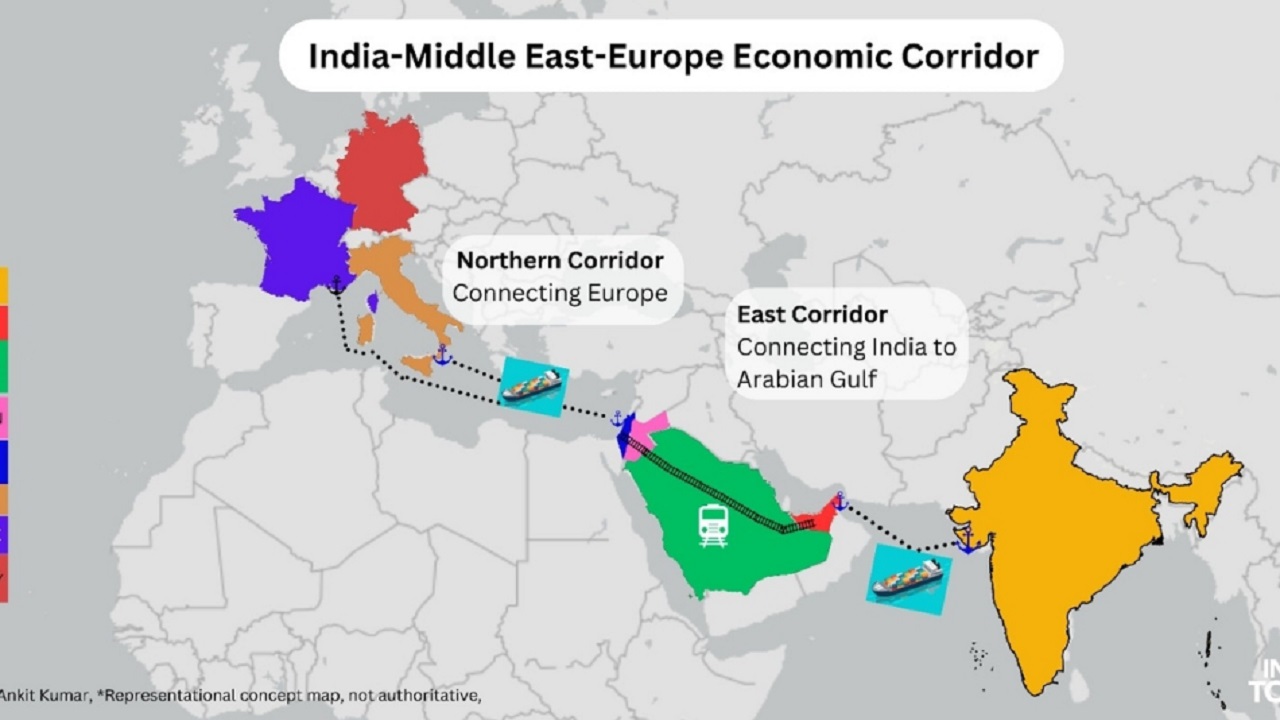India-Middle East-Europe Economic Corridor: A New Age Trade Route
Context : India and Italy have recently reaffirmed their commitment to strengthen cooperation on the ambitious India-Middle East-Europe Economic Corridor (IMEC) — a strategic connectivity project aimed at reshaping global trade routes. This development was highlighted during the meeting between External Affairs Minister S. Jaishankar and Italian Deputy Prime Minister and Minister of Foreign Affairs, Antonio Tajani, held in New Delhi.
Significance
The IMEC was formally announced during the G20 Leaders’ Summit held in New Delhi in 2023. This initiative is designed to stimulate economic growth by improving infrastructure connectivity and promoting deeper economic integration between Asia, the Middle East, and Europe. The corridor is structured around two key routes: the Eastern Corridor, connecting India to the Arabian Gulf, and the Northern Corridor, linking the Arabian Gulf to Europe. It will also include a dedicated railway link aimed at enhancing the speed and efficiency of trade across countries such as India, the UAE, Saudi Arabia, Jordan, Israel, and European nations.
Global Cooperation and Strategic Framework
The development of the IMEC is backed by a strong multilateral framework. An MoU for the project was signed by India, Saudi Arabia, the UAE, France, Germany, Italy, the European Union, and the United States, under the umbrella of the Partnership for Global Infrastructure and Investment (PGII). The PGII, first announced at the G7 Summit in the UK in 2021, is widely viewed as a democratic alternative to China’s Belt and Road Initiative (BRI), offering more transparent and sustainable financing for global infrastructure projects. During Prime Minister Modi's visit to France, President Emmanuel Macron identified the Port of Marseille as a future entry point for the corridor into European markets, calling IMEC a "fabulous catalyst" for accelerating cross-border investments and concrete development projects.
Geopolitical Challenges
Despite its potential, the IMEC faces serious geopolitical challenges. The Hamas attack on Israel on October 7, 2023, and the subsequent Gaza conflict have raised doubts about the stability of the region, which is central to the project's success. In addition, heightened tensions in the Middle East create further risks for both infrastructure continuity and long-term political cooperation, factors that are essential for the smooth implementation of such an ambitious transnational project.
Conclusion
For India, the IMEC represents more than just an infrastructure project; it is a strategic pathway to strengthen economic ties, improve energy security, and assert a central role in global supply chains. The corridor also aligns with India’s broader Act West Policy and reflects its growing stature in global diplomacy as it balances cooperation with the West, the Middle East, and Europe while safeguarding its national interests.

.jpg)


Comments (0)